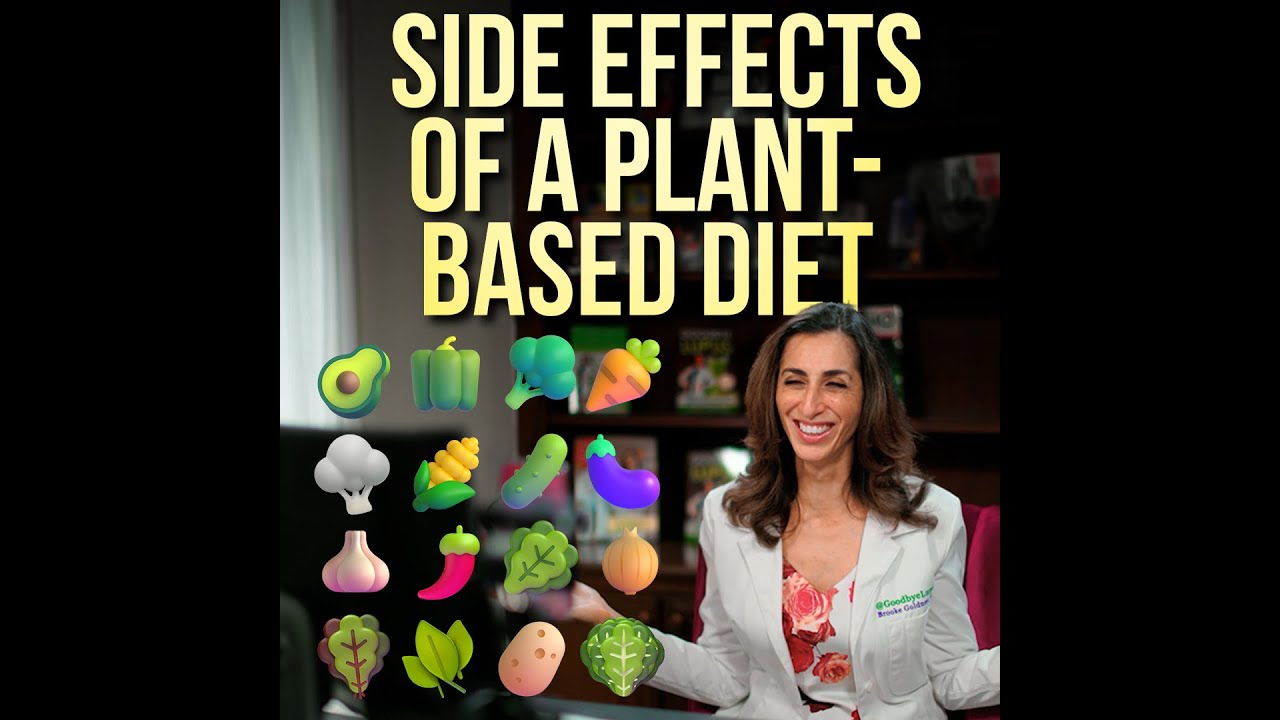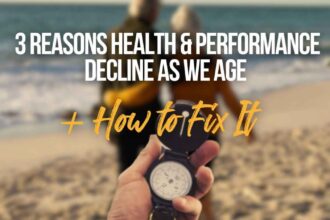Plant-only (vegan) diets offer many benefits when well-planned and they have Dangerous Side Effects. Washington D.C.–area clinicians and academic nutritionists warn that poorly constructed plant-only diets can produce specific, sometimes dangerous, side effects. This article summarizes nine of the most important risks, what the evidence says, and how to prevent them.
Quick prevention tips Side effect 1
Vitamin B12 deficiency — neurological damage & anemia
Vitamin B12 is not present in reliable amounts in unfortified plant foods. Long-term B12 deficiency can produce megaloblastic anemia and irreversible neurological damage (numbness, neuropathy, cognitive decline) if not detected and corrected. Washington D.C. nutrition clinicians routinely screen plant-only patients for B12 markers (serum B12 and methylmalonic acid) and recommend fortified foods or regular supplementation.
Evidence summary: major reviews show B12 is the top nutrient of concern in vegan diets. :contentReference[oaicite:0]{index=0} Side effect 2
Iron-deficiency anemia — fatigue and reduced exercise capacity
Non-heme iron from plants is less bioavailable than heme iron from animal sources. Women of childbearing age and athletes are especially vulnerable to low ferritin and iron-deficiency anemia if they rely on plant-only menus without pairing iron-rich foods with vitamin C or monitoring ferritin. D.C. hematologists recommend targeted ferritin testing when symptoms (fatigue, pallor, performance drop) occur.
Authoritative reviews and clinical guidance document lower iron stores in some plant-only groups and advise monitoring. :contentReference[oaicite:1]{index=1} Side effect 3
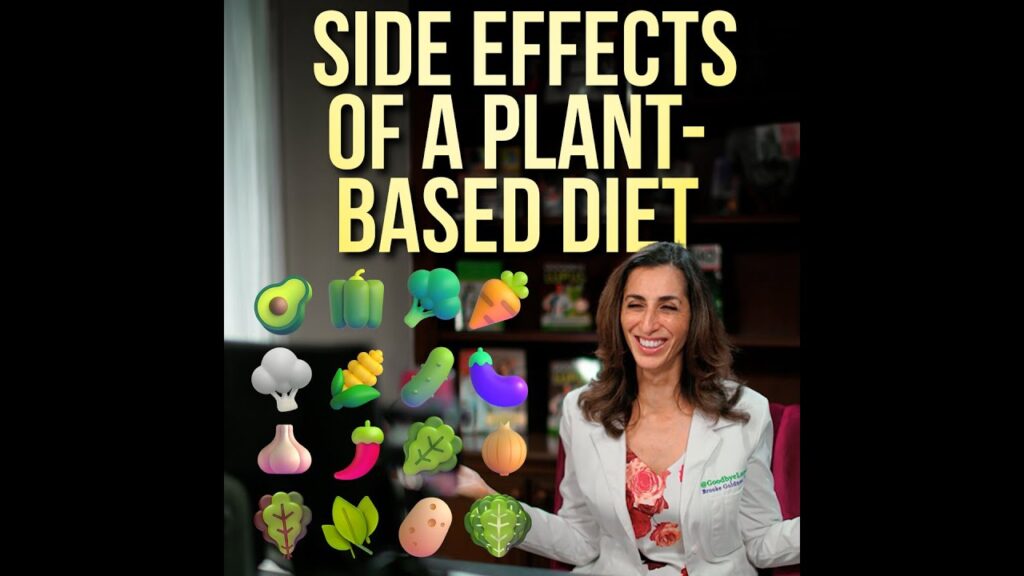
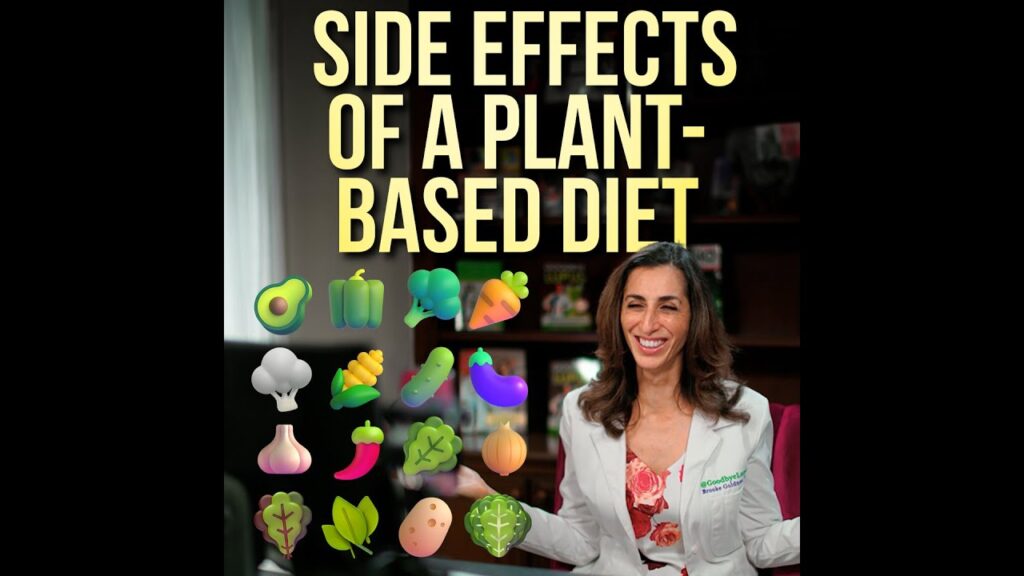
Low omega-3 (EPA/DHA) status — cognitive and cardiovascular implications
Plant sources provide ALA (alpha-linolenic acid) but conversion to EPA and DHA is limited. Low EPA/DHA has been associated with poorer cognitive outcomes and may affect cardiovascular risk markers. Many Washington D.C. clinicians advise testing omega-3 status (or considering algae-based DHA/EPA supplements) for people on strict plant-only diets, particularly pregnant women and older adults.
Recent reviews document conversion limits and the clinical rationale for testing or supplementing. :contentReference[oaicite:2]{index=2} Side effect 4
Insufficient iodine — thyroid dysfunction risk
Iodine is essential to thyroid hormone production. Vegan diets that avoid iodized salt and seaweed may inadvertently be low in iodine, increasing the risk of hypothyroidism or goiter in susceptible individuals. Local endocrinologists in the D.C. region emphasize using iodized salt in moderation or monitoring TSH levels when dietary iodine is uncertain.
Clinical reviews and population studies highlight iodine as a potential blind spot for plant-only diets. :contentReference[oaicite:3]{index=3} Side effect 5
Calcium & vitamin D shortfalls — bone health and fracture risk
Eliminating dairy increases the need to plan for calcium and vitamin D from fortified foods or supplements. Over years, inadequate calcium plus low vitamin D can reduce bone mineral density and raise fracture risk—especially in teens, young women, and older adults. D.C. bone-health specialists advise periodic bone-density screening for high-risk individuals on long-term plant-only diets.
Nutrition guidance recommends fortified foods and monitoring to protect bone health. :contentReference[oaicite:4]{index=4} Side effect 6
Protein quality gaps in vulnerable groups — sarcopenia & poor recovery
Most adults meet total protein targets on plant-rich diets, but some groups (older adults, recovering patients, competitive athletes) need higher per-meal protein and specific amino acids (leucine, lysine) to maintain muscle mass and heal effectively. D.C. geriatricians and sports dietitians warn that inadequate attention to protein distribution can accelerate sarcopenia or impair recovery after illness.
Meta-analyses and reviews show amino-acid composition and meal distribution matter for muscle maintenance. :contentReference[oaicite:5]{index=5} Side effect 7
Excess reliance on ultra-processed plant foods — metabolic and sodium risks
Replacing animal products with highly processed “meat analogues,” snacks, and sweetened plant foods can raise sodium, saturated-fat equivalents (from coconut oil), and added sugars—blunting the cardiometabolic benefits of whole-food plant diets. D.C. cardiometabolic clinics caution that a “plant-only” label does not automatically equal healthy.
Reviews on processed plant-based foods warn against assuming all plant-coded products are healthful. :contentReference[oaicite:6]{index=6} Side effect 8
Growth, development and pediatric risks if poorly planned
Evidence shows that vegan diets for infants and young children require special attention — inadequate energy, protein, calcium, vitamin D, and B12 may impair growth and bone development. Washington D.C. pediatric nutrition experts stress that plant-only diets for children must be supervised by pediatricians and dietitians and usually include fortified foods or supplements.
Pediatric reviews highlight growth and bone-mineral differences and recommend targeted supplementation and monitoring. :contentReference[oaicite:7]{index=7} Side effect 9
Undiagnosed deficiencies masquerading as mental health or fatigue issues
Low B12, iron, vitamin D, or omega-3s can present with mood changes, cognitive fog, or fatigue—symptoms often attributed to stress rather than nutrition. D.C. mental health clinicians and primary-care physicians recommend including basic nutrition labs when evaluating unexplained mood or cognitive complaints in people on strict plant-only diets.
Reviews link nutrient shortfalls to neurocognitive and mood symptoms; clinical practice increasingly screens for nutritional causes. :contentReference[oaicite:8]{index=8}
Quick prevention tips — how Washington D.C. experts avoid these dangers
- Get baseline labs: B12 (±MMA), ferritin, TSH, 25-OH vitamin D, and consider Omega-3 index testing if available.
- Use fortified foods (plant milks, cereals) and a reliable daily/weekly B12 supplement.
- Pair iron-rich plant foods with vitamin C and consider ferritin repletion when low.
- Consider algae-based EPA/DHA supplements for pregnant women, older adults, or anyone with low omega-3 status.
- Favor whole, minimally processed plants; limit ultra-processed meat alternatives and packaged snacks.
- Work with a registered dietitian or lifestyle-medicine clinic for tailored plans, especially for children, pregnant people, older adults, and athletes.
The approach above reflects consensus guidance from clinical reviews and practice recommendations. :contentReference[oaicite:9]{index=9}
Washington D.C. resources (maps) — where to get evaluated
Below are embedded maps for local centers where you can consult registered dietitians, endocrinologists, and clinical nutrition teams who routinely manage plant-only diet plans and monitor these risks.
George Washington University — Integrative & Nutrition Programs
MedStar Health — Nutrition & Outpatient Dietitians (Washington, D.C.)
NIH / Clinical Research & Nutrition Resources (Bethesda, MD)
NIH — Research & health resources
If embedded maps are blocked, click the links above to open each location in a new tab.
Further reading & trusted sources
- Comprehensive reviews on vegan/plant-based diets and nutrient adequacy. :contentReference[oaicite:10]{index=10}
- Pediatric guidance on vegetarian/vegan diets for children. :contentReference[oaicite:11]{index=11}
- Mayo Clinic overview of vegetarian diets and nutrients to monitor. :contentReference[oaicite:12]{index=12}
- Clinical reviews on omega-3 status and plant sources. :contentReference[oaicite:13]{index=13}
Internal IHOXI links
- Plant-Only Diet Checklist — labs & supplements
- Omega-3s: Plant sources vs algae supplements
- Raising Vegetarian Children: Safety & screening guide
Bottom line
Washington D.C. experts agree: plant-only diets can be healthful and protective — but only when thoughtfully constructed and monitored. The nine dangerous side effects above are largely preventable with screening, fortified foods or supplements, and professional guidance. If you or a family member follow a strict plant-only diet, schedule a baseline evaluation with a registered dietitian or primary-care clinician to confirm you’re protecting your long-term health.
Educational content only — not a substitute for medical advice. Consult your healthcare provider if you have symptoms or before changing supplements or medications.
© 2025 IHOXI • Privacy • Contact
Vitamin D Deficiency Risks in Plant-Only Diets
Washington D.C. nutrition experts point out that a plant-only diet may lack sufficient vitamin D, which is primarily found in fortified foods or animal products. Deficiency can lead to weakened immunity, bone issues, and fatigue. Studies confirm that supplementation or controlled sun exposure is critical for those avoiding animal sources.
Impact on Skin Health from Nutrient Imbalances
Dermatologists in Washington D.C. reveal that people following strict plant-only diets may experience dry skin, acne, or premature aging if omega-3s, zinc, and vitamin A are not balanced. While fruits and vegetables provide antioxidants, the lack of essential fatty acids can offset those benefits.
Iron Absorption Challenges in Plant-Only Diets
Experts highlight that plant-based iron (non-heme) is harder for the body to absorb compared to animal-based iron (heme). Washington D.C. health researchers emphasize that this can lead to anemia over time unless paired with vitamin C-rich foods or supplements to enhance absorption.
Potential for Hormonal Imbalances
Endocrinologists warn that excessive reliance on soy and phytoestrogens in plant-only diets may disrupt hormone balance in some individuals. While soy can be beneficial in moderation, Washington D.C. clinics advise careful dietary planning to avoid long-term endocrine issues.
Effects on Digestive Health
High fiber content in plant-only diets can sometimes overload the digestive system, leading to bloating, gas, and stomach discomfort. Washington D.C. gastroenterologists recommend gradually increasing fiber intake and diversifying food sources to protect digestive health.
Risks for Pregnant Women on Plant-Only Diets
Pregnant women may face unique challenges on a plant-only diet. Washington D.C. obstetricians caution that folate, iron, calcium, and DHA omega-3s are essential for fetal development. Deficiencies during pregnancy can affect both the mother’s health and the baby’s growth.
Bone Density Concerns Beyond Calcium
Calcium is not the only factor in bone health. Washington D.C. experts reveal that magnesium, vitamin K2, and protein are equally important, yet often overlooked in plant-only diets. Without proper intake, vegetarians risk developing osteoporosis or bone fragility later in life.
Energy Deficits for Athletes
Sports medicine specialists in Washington D.C. report that athletes on plant-only diets may struggle with energy availability if calorie intake is not sufficient. While plant foods can fuel endurance, inadequate protein or calorie density can impair recovery and muscle maintenance.
Psychological Effects of Restricted Eating
Washington D.C. behavioral scientists note that individuals on strict plant-only diets may experience social isolation, food anxiety, or disordered eating patterns. Experts recommend building a flexible, sustainable approach to avoid mental health stressors tied to dietary rigidity.
Dental Health Challenges
Dentists in Washington D.C. have observed that high consumption of acidic fruits and refined carbs in plant-only diets can erode enamel and increase cavity risks. Regular dental checkups and balanced food choices are critical for oral health.

Increased Risk of Vitamin B12 Neurological Issues
Washington D.C. neurologists warn that vitamin B12 deficiency, common in plant-only diets, can lead to neurological issues such as memory loss, tingling sensations, and cognitive decline. Supplementation remains the only reliable way to prevent long-term neurological risks.
Hidden Sodium in Plant-Based Alternatives
Washington D.C. dietitians caution that many packaged plant-based foods, such as meat substitutes, are high in sodium. Excess sodium intake can increase the risk of high blood pressure and cardiovascular problems, offsetting the health benefits of a plant-only diet.
Dangerous Side Effects of Low Omega-3 Intake
Washington D.C. cardiologists emphasize that one of the most overlooked dangerous side effects of a plant-only diet is a deficiency in omega-3 fatty acids. These essential fats, primarily found in fish, play a critical role in reducing inflammation, supporting brain function, and improving cardiovascular health. While chia seeds, flaxseeds, and walnuts provide ALA (alpha-linolenic acid), the body’s ability to convert ALA into the more beneficial EPA and DHA is limited. Experts warn that long-term deficiencies may increase the risk of depression, poor memory retention, and heart disease, making supplementation or fortified foods necessary for individuals on strict plant-based diets.
Risk of Lower Immunity Levels
Washington D.C. immunologists caution that immunity may decline when key nutrients from animal products are missing in a plant-only diet. Dangerous side effects include a higher susceptibility to colds, infections, and slower wound healing due to deficiencies in zinc, selenium, and vitamin B12. While these minerals exist in plant sources, their bioavailability is reduced compared to meat-based foods. This means vegetarians and vegans must consume much larger quantities of legumes, nuts, and seeds to meet daily requirements. Without a proactive approach, dangerous side effects like chronic fatigue and prolonged recovery from illness become more likely.
Potential Cognitive Decline Over Time
One of the dangerous side effects that Washington D.C. neurologists raise alarms about is the connection between plant-only diets and cognitive decline. B12, choline, and DHA are critical for maintaining memory and neurological function, yet they are difficult to obtain from plant sources alone. Long-term B12 deficiency, in particular, can cause irreversible nerve damage, mood disorders, and impaired cognitive function. Experts stress that supplementation is not optional but essential to avoid these dangerous side effects, especially among older adults who are already at risk for dementia and memory loss.
Digestive Discomfort Due to Excess Fiber
While fiber is often celebrated as a cornerstone of plant-based nutrition, Washington D.C. gastroenterologists warn that excessive intake can trigger dangerous side effects. A sudden shift to a high-fiber diet may overwhelm the digestive system, leading to bloating, gas, and abdominal pain. For individuals with sensitive stomachs or pre-existing gut conditions, these dangerous side effects can escalate into chronic digestive issues. Experts recommend gradually increasing fiber intake, drinking plenty of water, and incorporating fermented foods to balance gut health while avoiding discomfort.
Loss of Lean Muscle Mass
Washington D.C. sports nutrition experts stress that inadequate protein intake is one of the dangerous side effects for plant-only dieters, especially athletes and active individuals. While beans, lentils, and soy products provide plant-based protein, they often lack complete amino acid profiles. Without careful planning, this can lead to muscle wasting, slower recovery times, and decreased strength. Dangerous side effects also include a weakened metabolism and reduced energy reserves, particularly concerning for elderly populations who need protein to maintain bone density and mobility.
Increased Anxiety and Mood Disorders
Mental health experts in Washington D.C. report that mood swings and anxiety are dangerous side effects linked to plant-only diets that lack omega-3s, B vitamins, and tryptophan. These nutrients are critical for serotonin regulation, the neurotransmitter responsible for emotional balance. Inadequate intake may increase risks of depression and irritability. Dangerous side effects also include difficulty sleeping and heightened stress responses. While supplements can bridge some gaps, experts urge a mindful approach to nutrition to protect psychological well-being.
Dangerous Side Effects of Weak Blood Health
Washington D.C. hematologists point out that plant-only diets may increase the risk of anemia due to low iron, B12, and folate levels. While plant-based iron sources are abundant, they are not absorbed as efficiently as animal-based iron. Dangerous side effects include fatigue, shortness of breath, and pale skin. Severe anemia may even lead to heart complications if left untreated. Pairing iron-rich plant foods with vitamin C and considering supplements can reduce these risks, but experts warn that ongoing monitoring is essential.
Overconsumption of Processed Plant-Based Foods
Another dangerous side effect Washington D.C. dietitians have flagged is the rising trend of processed plant-based alternatives. Many meat substitutes and packaged vegan products contain high levels of sodium, refined oils, and additives. Dangerous side effects include increased risks of hypertension, obesity, and metabolic syndrome. Experts urge plant-only eaters to focus on whole foods rather than relying heavily on ultra-processed substitutes that may offset the health benefits of a vegetarian lifestyle.
Calcium and Magnesium Deficiencies Affecting Bones
Beyond protein and vitamin D, Washington D.C. bone health specialists highlight calcium and magnesium deficiencies as dangerous side effects in plant-only diets. These minerals are crucial for maintaining bone density and preventing fractures. While leafy greens contain calcium, compounds like oxalates can inhibit absorption. Dangerous side effects may manifest as brittle bones, muscle cramps, or even osteoporosis in severe cases. Regular monitoring and fortified plant-based alternatives can help mitigate these risks.
Reduced Fertility Potential
Reproductive health experts in Washington D.C. caution that nutrient deficiencies from a plant-only diet may contribute to reduced fertility in both men and women. Dangerous side effects such as irregular menstrual cycles, poor sperm health, and hormonal imbalances are linked to low intake of zinc, B12, and omega-3 fatty acids. These nutrients are essential for reproductive hormone production and embryo development. Experts stress the importance of targeted supplementation for couples planning a family while following plant-based eating patterns.
Allergic Reactions from Overdependence on Soy
Soy is often used as a staple in plant-only diets, but Washington D.C. allergists warn of dangerous side effects tied to soy overconsumption. Some individuals develop food sensitivities or allergic reactions, ranging from digestive discomfort to skin rashes and even respiratory issues. Dangerous side effects worsen when soy is consumed excessively in the form of milk, tofu, or meat substitutes. Experts recommend diversifying protein sources with lentils, beans, and quinoa to reduce these risks.
Vitamin A Deficiency Risks
Washington D.C. nutrition researchers highlight vitamin A deficiency as one of the less-discussed but real dangerous side effects of a plant-only diet. While beta-carotene from plants converts into vitamin A, the conversion rate is highly inefficient. Dangerous side effects include impaired vision, weak immunity, and poor skin health. Populations with higher vitamin A needs, such as children and pregnant women, face even greater risks without supplementation or fortified foods.
Choline Deficiency and Liver Health
Choline is a nutrient mostly found in eggs and meat, and Washington D.C. liver specialists emphasize that deficiency is a dangerous side effect for plant-only eaters. Choline is essential for brain function, fat metabolism, and liver detoxification. Without enough choline, dangerous side effects may include fatty liver disease, cognitive decline, and poor memory. Since plant sources of choline are minimal, supplementation is often recommended to avoid long-term complications.
Unintended Weight Gain from Carb Overload
Washington D.C. diet experts warn that some individuals switching to plant-only diets end up consuming excessive refined carbs like bread, pasta, and rice. Dangerous side effects include unintended weight gain, blood sugar spikes, and a heightened risk of type 2 diabetes. Without proper balance, a plant-based diet can shift from health-promoting to health-compromising. Experts recommend whole grains, legumes, and mindful portion control to avoid these pitfalls.
Long-Term Eye Health Concerns
Eye specialists in Washington D.C. report that plant-only diets may contribute to vision issues if essential nutrients like vitamin A, lutein, and DHA are inadequate. Dangerous side effects include night blindness, dry eyes, and an increased risk of macular degeneration. While leafy greens provide lutein, the lack of animal-derived DHA and vitamin A increases vulnerability over time. Supplementation and fortified foods are recommended for optimal eye health.
Frequently Asked Questions: Dangerous Side Effects of Plant-Only Diets
1. What are the most common Dangerous Side Effects of a plant-only diet?
The most common Dangerous Side Effects include vitamin B12 deficiency, low iron absorption, and fatigue due to inadequate protein intake. Washington D.C. experts highlight that careful planning is essential to avoid these issues.
2. Can Dangerous Side Effects impact mental health?
Yes, Dangerous Side Effects such as low B12 and omega-3 levels can lead to mood swings, depression, and memory problems. Plant-only eaters should consider supplements or fortified foods to support brain health.
3. Are children more vulnerable to Dangerous Side Effects on a plant-only diet?
Children are more vulnerable because they need higher amounts of nutrients for growth. Dangerous Side Effects like stunted development, weak bones, and poor immunity may occur if diets are not carefully managed.
4. Do athletes experience different Dangerous Side Effects?
Athletes may experience Dangerous Side Effects such as muscle loss, slower recovery, and reduced endurance due to insufficient complete proteins and essential amino acids from plant-only diets.
5. Can Dangerous Side Effects include bone weakness?
Yes, Washington D.C. bone health experts confirm that Dangerous Side Effects include low calcium and vitamin D levels, which may increase risks of osteoporosis and fractures over time.
6. Are digestive issues considered Dangerous Side Effects?
Excessive fiber intake in plant-only diets can trigger digestive problems. Dangerous Side Effects include bloating, gas, and abdominal discomfort if fiber levels are not balanced with hydration.
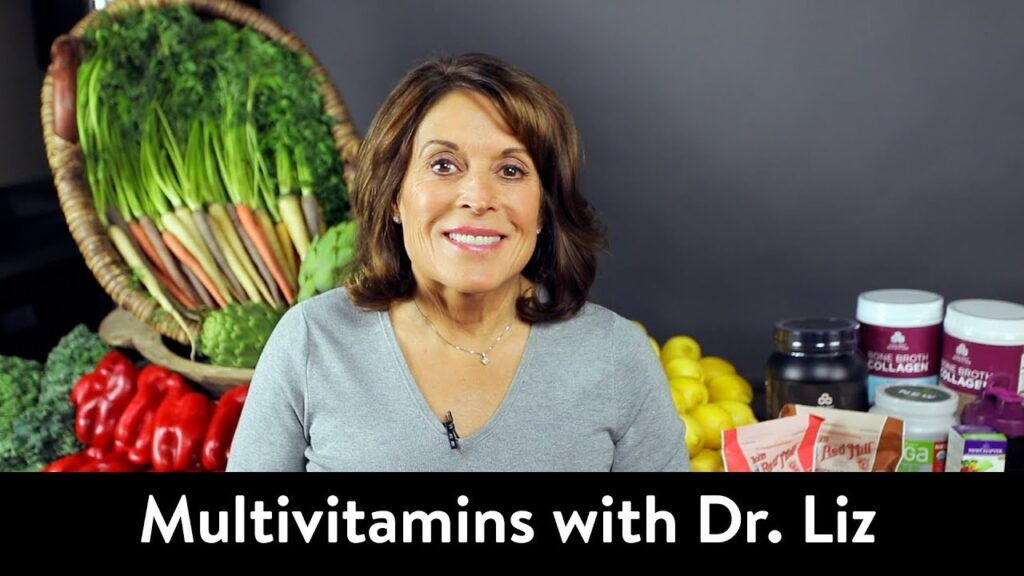
7. Can Dangerous Side Effects affect fertility?
Yes, Dangerous Side Effects like zinc and B12 deficiencies may lead to hormonal imbalances, irregular menstrual cycles, and reduced sperm quality, affecting fertility in both men and women.
8. Are there long-term Dangerous Side Effects linked to vision?
Eye specialists note that Dangerous Side Effects may include poor night vision and higher risks of macular degeneration due to inadequate vitamin A, lutein, and DHA from plant-only diets.
9. Can Dangerous Side Effects be avoided with supplements?
Most Dangerous Side Effects can be reduced with well-chosen supplements such as vitamin B12, DHA, and fortified plant milks. However, experts emphasize monitoring nutrient levels regularly.
10. Are Dangerous Side Effects reversible once deficiencies are corrected?
Some Dangerous Side Effects like mild fatigue or low immunity are reversible with proper nutrition, but prolonged deficiencies in B12 may cause irreversible nerve damage, according to Washington D.C. experts.

